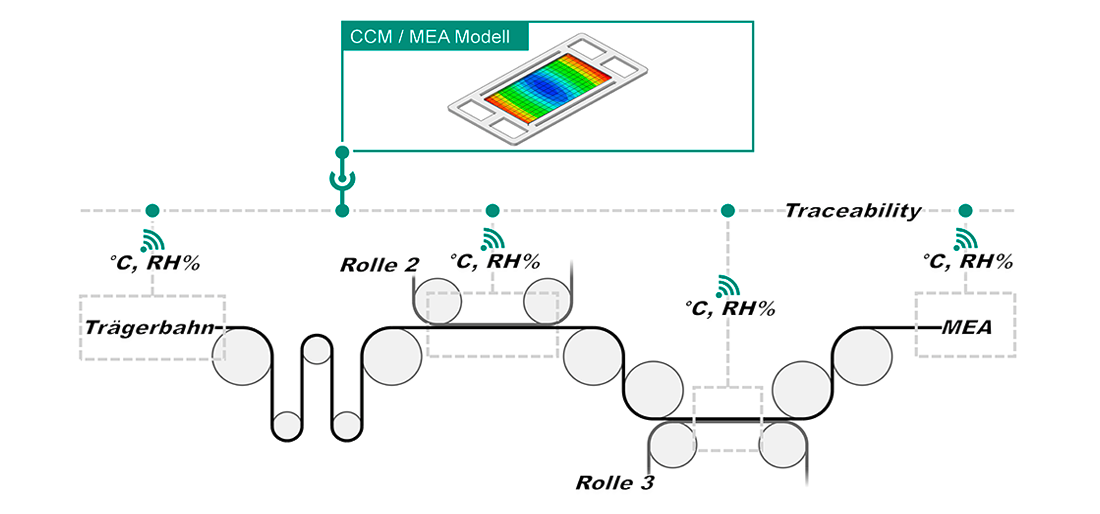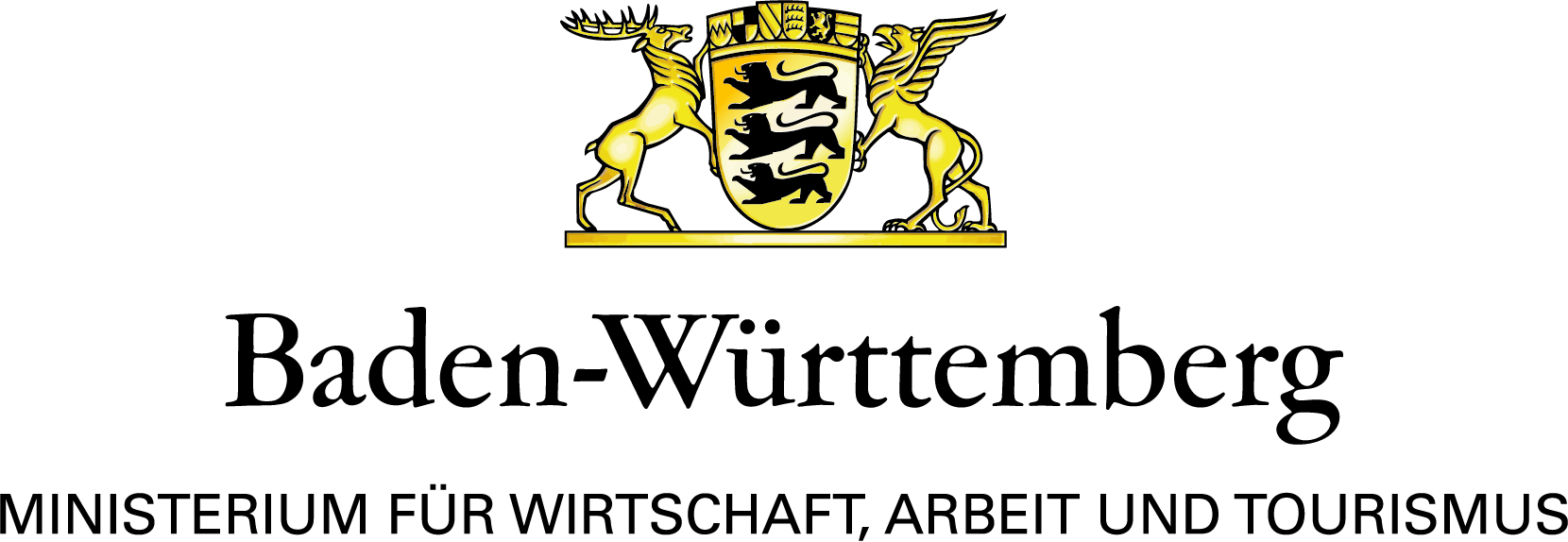
In a cooperation project between the wbk Institute of Production Engineering, the TFT Thin Film Technology institute at the Karlsruhe Institute of Technology and their associated partner cellcentric, a demand-oriented conditioning strategy in high-volume Membrane Electrode Assembly (MEA) production was investigated with the help of simulations. Compared to conventional air conditioning, local air conditioning in critical production steps could save resources and optimize economic efficiency.
At the TFT institute, the sorption and desorption behavior of Catalyst Coated Membranes (CCMs) was analyzed under different climatic conditions and compared with pure membranes. At the wbk, the dimensional changes and mechanical properties of the CCMs were characterized macroscopically depending on the climatic conditions. A simulation model of the various production steps was developed considering the specific material properties. The moisture-induced tensions and deformations of the CCM were analyzed under different conditioning strategies with the help of the finite element method. Further, the use of terahertz radiation-based sensor technology to measure the moisture content of the membrane was investigated. Furthermore, the simulation results and the kinetics of CCM’s water uptake were transferred to a metamodel to derive an approach for a climate-adaptive MEA fabrication.
